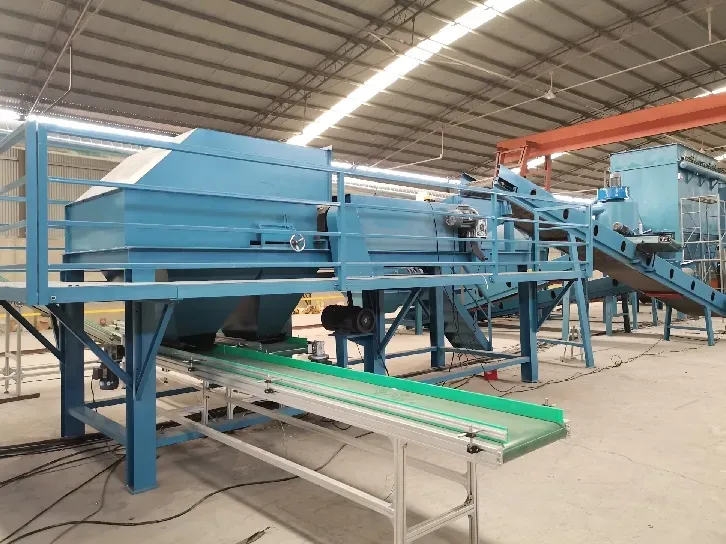

វិច្ឆិកា . 08, 2024 08:04 Back to list
Metal Recycling Plant A Sustainable Solution for the Future
In an era where environmental awareness is paramount, metal recycling plants play a crucial role in promoting sustainability and reducing the carbon footprint. The increasing consumption of metals, driven by industrial growth and technological advancements, has necessitated the establishment of efficient recycling practices. A metal recycling plant serves as a hub for processing scrap metal, transforming waste into valuable resources while addressing the pressing issue of resource depletion.
At its core, a metal recycling plant operates by collecting, sorting, and processing scrap metal from various sources. This can include consumer goods, construction debris, automotive parts, and obsolete machinery. The process begins with the collection of materials, often facilitated by community drop-off centers or curbside pickup programs. Once collected, metals are sorted according to type and quality, ensuring that different metals do not contaminate each other during processing. This segregation is essential, as different metals have varying properties and recycling methods.
After sorting, metals undergo a series of mechanical processes designed to shred, crush, and compact them for efficient transportation and melting. Shredding breaks down large pieces, allowing for easier handling, while compaction reduces the volume of scrap, making it more cost-effective to transport to foundries or smelting facilities. The actual melting process involves heating the metals to their melting points, transforming them into molten form. This is a crucial step, as it allows metals to be cast into new products, completing the recycling loop.
One of the primary advantages of metal recycling is its positive impact on the environment. Recycling metals requires significantly less energy compared to mining and refining virgin ores. For instance, producing aluminum from recycled materials uses about 95% less energy than creating it from raw bauxite. This reduction in energy consumption translates to fewer greenhouse gas emissions, making metal recycling a vital strategy in combating climate change.

Moreover, metal recycling conserves natural resources. The Earth’s metal resources are finite, and continuous mining can lead to habitat destruction, soil erosion, and pollution. By recycling metals, we can ensure a more sustainable approach to resource management, allowing future generations to maintain access to essential materials. Additionally, recycling metals reduces the volume of waste sent to landfills, addressing the growing concern of waste management.
Besides environmental benefits, metal recycling plants contribute significantly to the economy. The recycling industry creates jobs across various segments, from collection and sorting to processing and distribution. These plants often employ skilled workers who specialize in various aspects of metal recovery, contributing to local economies and providing essential livelihoods. Furthermore, recycled metals can be sold at a lower cost than their newly mined counterparts, making them a more attractive option for manufacturers and consumers alike.
Furthermore, advancements in technology are continually improving the efficiency and effectiveness of metal recycling processes. Innovations such as automated sorting systems and advanced shredding techniques enhance the ability to recover valuable materials from complex waste streams. As public awareness of sustainability grows, the demand for recycled metals is expected to increase, prompting further investments in recycling infrastructure.
In conclusion, metal recycling plants are vital to creating a sustainable future. They not only help conserve natural resources and reduce environmental impact but also contribute to economic growth and job creation. As society continues to grapple with the challenges of waste management and resource sustainability, investing in and supporting metal recycling initiatives will be essential. By embracing recycling, we can pave the way for a healthier planet and a more sustainable economy, ensuring that valuable materials are reused rather than discarded.
Latest news
Troubleshooting Common Eddy Separator Problems
NewsJul.04,2025
The Role of Metal Recycling Plants in Circular Economy
NewsJul.04,2025
The Impact of Recycling Line Pickers on Waste Management Costs
NewsJul.04,2025
Safety Features Every Metal Shredder Should Have
NewsJul.04,2025
How Industrial Shredders Improve Waste Management Systems
NewsJul.04,2025
How Cable Granulators Contribute to Sustainable Recycling
NewsJul.04,2025